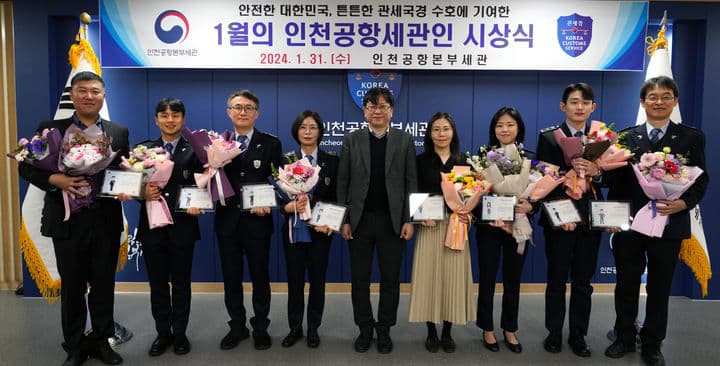Per the news outlet Incheon Ilbo, the employee at Incheon Airport Regional Customs stopped smugglers from bringing crypto mining hardware worth around 1.4 million into South Korea.
The Customs Service said that a Supervisor named So Min-seop “discovered smugglers” trying to “import virtual currency mining machines.”
The service said that So recognized that a shipment of goods had “disguised product names” in their customs clearance documentation.
So flagged the shipment, and helped discover that a container had been filled with unregistered and undeclared crypto mining rigs.
The service awarded So with a “person of merit” prize in the “special customs clearance” category at an awards ceremony. An airport customs official said:
“We plan to continue to discover and reward employees who have demonstrated outstanding capabilities in customs administration. We want to decorate those who contribute to the development of our institution.”
The service said that So had also “contributed to additional detections” of smuggled goods, displaying “thorough information analysis” skills.
 Korea Customs Service officials at an awards ceremony on January 31, 2024, with Supervisor Seo Min-seop second from right. (Source: Incheon Airport Regional Customs)
Korea Customs Service officials at an awards ceremony on January 31, 2024, with Supervisor Seo Min-seop second from right. (Source: Incheon Airport Regional Customs)South Korean Customs Service Wages ‘War’ Against Illegal Crypto Activities, Drugs
The service explained that it had also rewarded other staff members for intercepting “3.85 kg of methamphetamine (crystal meth).”
The drugs were found hidden in the baggage of air travelers who arrived in Incheon on a flight from Cambodia.
🇰🇷 South Korea Seeks Regulation Against Crypto Mixers Citing Illegal Use Cases
Learn more 👇
— Cryptonews.com (@cryptonews) January 15, 2024
Customs officials and police officers have been waging what the nation’s President has called a “war” against crypto-powered drug sales.
Teens and people in their 20s have been smuggling drugs into the country and using Telegram and Bitcoin (BTC) to organize dead-drop style drug “deliveries.”
In 2021, customs officials said they had tracked down undeclared “kimchi premium” transactions that raked in profits worth about $4.38m.
Late last year, customs officials arrested seven people in a raid on an “intentional illegal gambling ring” that was allegedly using USDT as a money laundering tool.
 cryptonews.com
cryptonews.com